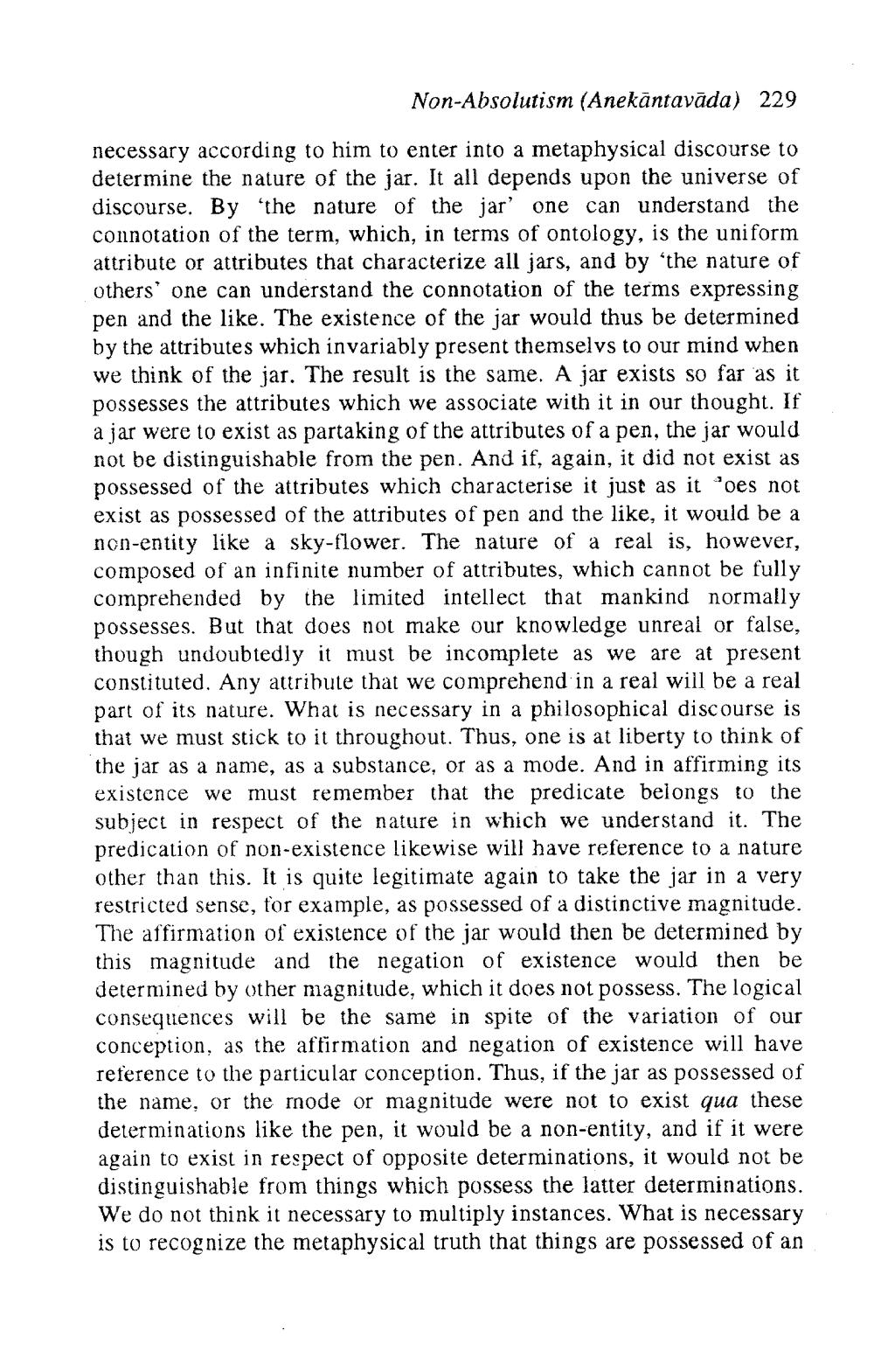________________
Non-Absolutism (Anekāntavāda) 229
necessary according to him to enter into a metaphysical discourse to determine the nature of the jar. It all depends upon the universe of discourse. By the nature of the jar' one can understand the connotation of the term, which, in terms of ontology, is the uniform attribute or attributes that characterize all jars, and by the nature of others' one can understand the connotation of the terms expressing pen and the like. The existence of the jar would thus be determined by the attributes which invariably present themselvs to our mind when we think of the jar. The result is the same. A jar exists so far as it possesses the attributes which we associate with it in our thought. If a jar were to exist as partaking of the attributes of a pen, the jar would not be distinguishable from the pen. And if, again, it did not exist as possessed of the attributes which characterise it just as it 'oes not exist as possessed of the attributes of pen and the like, it would be a non-entity like a sky-flower. The nature of a real is, however, composed of an infinite number of attributes, which cannot be fully comprehended by the limited intellect that mankind normally possesses. But that does not make our knowledge unreal or false, though undoubtedly it must be incomplete as we are at present constituted. Any attribute that we comprehend in a real will be a real part of its nature. What is necessary in a philosophical discourse is that we must stick to it throughout. Thus, one is at liberty to think of the jar as a name, as a substance, or as a mode. And in affirming its existence we must remember that the predicate belongs to the subject in respect of the nature in which we understand it. The predication of non-existence likewise will have reference to a nature other than this. It is quite legitimate again to take the jar in a very restricted sense, for example, as possessed of a distinctive magnitude. The affirmation of existence of the jar would then be determined by this magnitude and the negation of existence would then be determined by other magnitude, which it does not possess. The logical consequences will be the same in spite of the variation of our conception, as the affirmation and negation of existence will have reference to the particular conception. Thus, if the jar as possessed of the name, or the mode or magnitude were not to exist qua these determinations like the pen, it would be a non-entity, and if it were again to exist in respect of opposite determinations, it would not be distinguishable from things which possess the latter determinations. We do not think it necessary to multiply instances. What is necessary is to recognize the metaphysical truth that things are possessed of an




